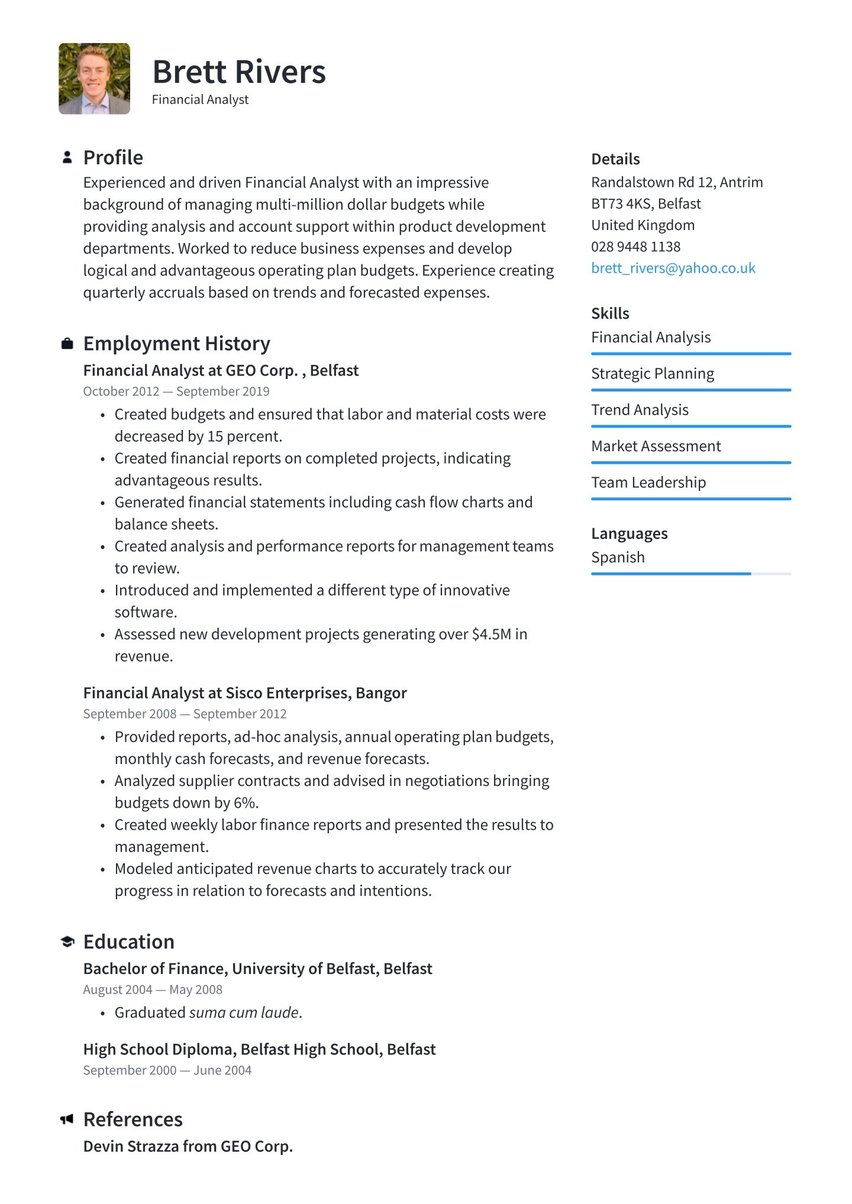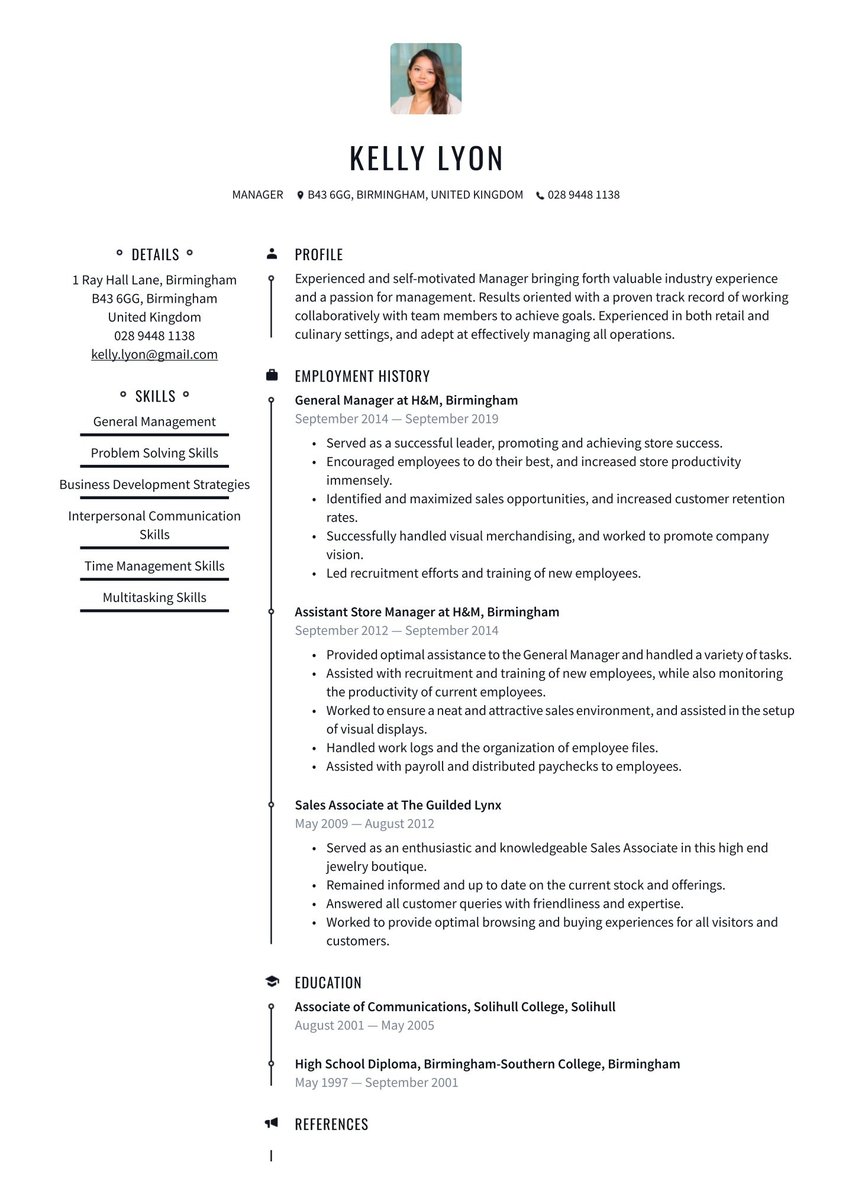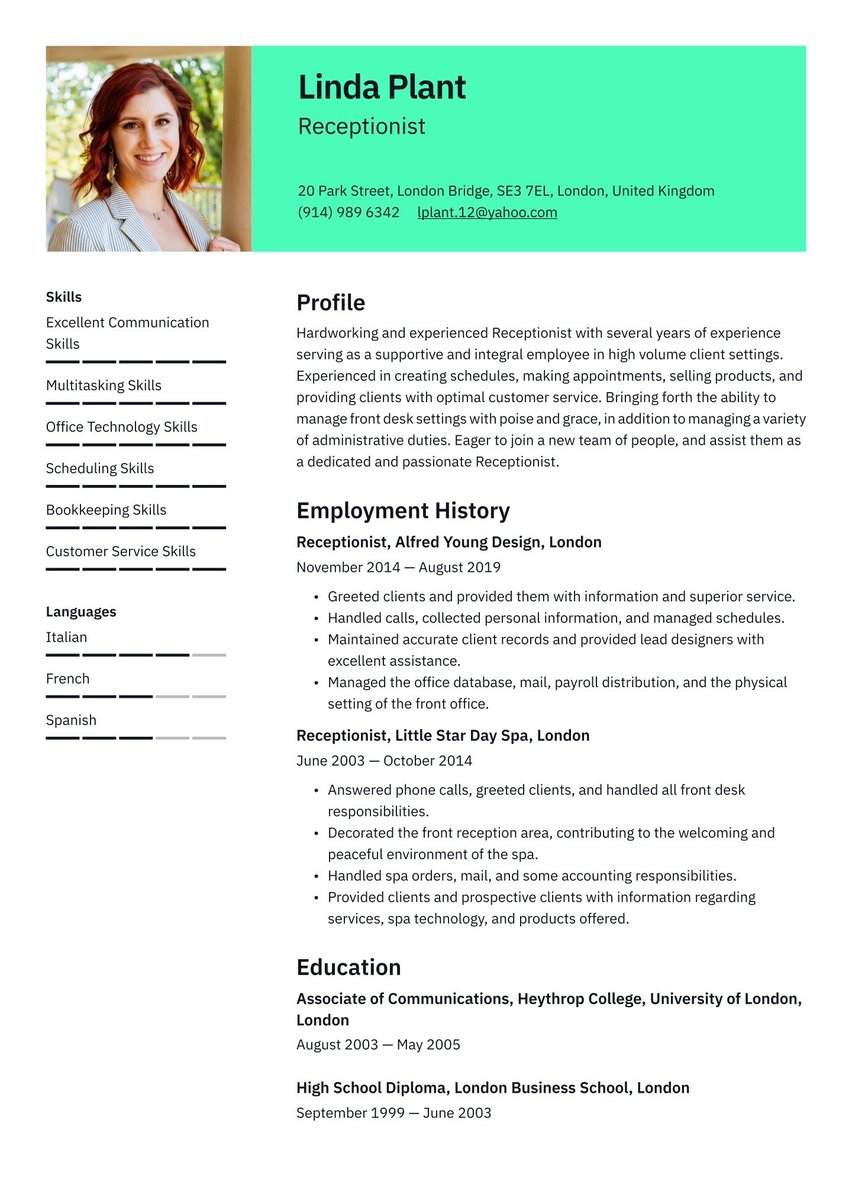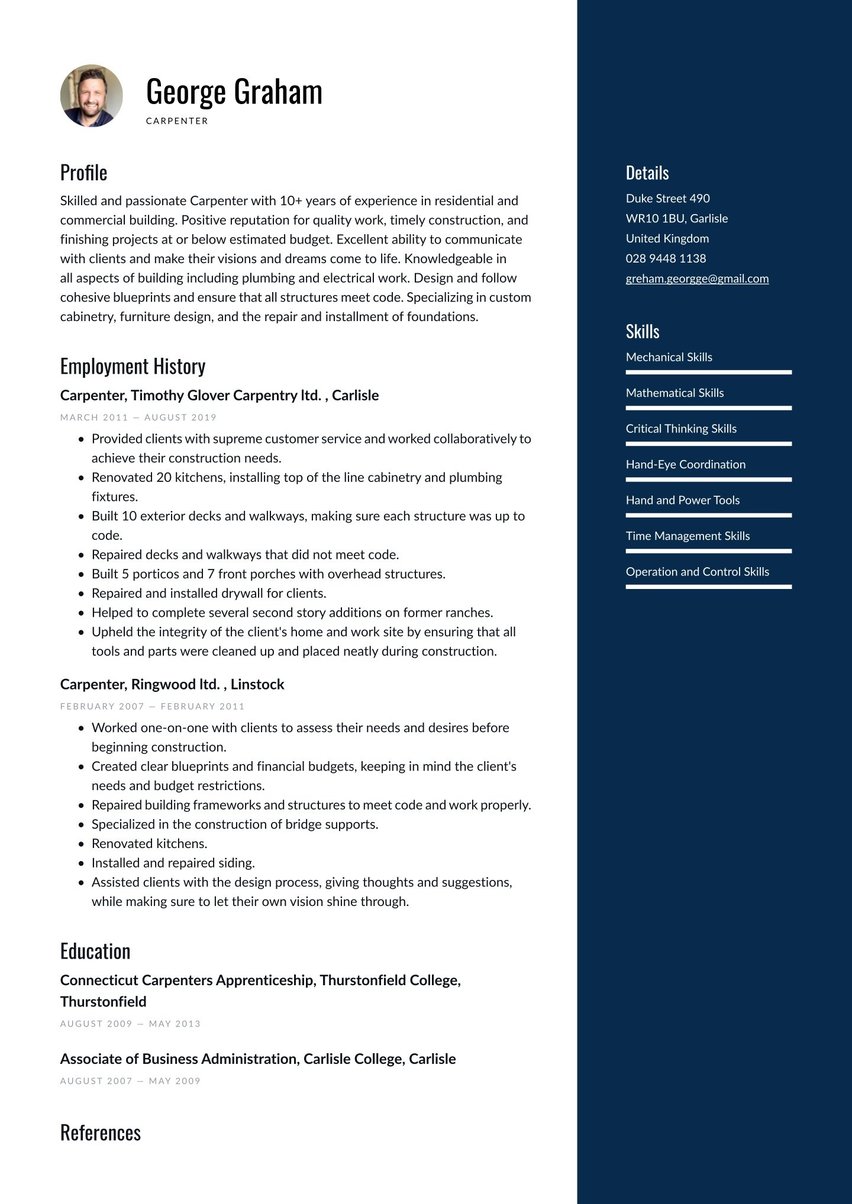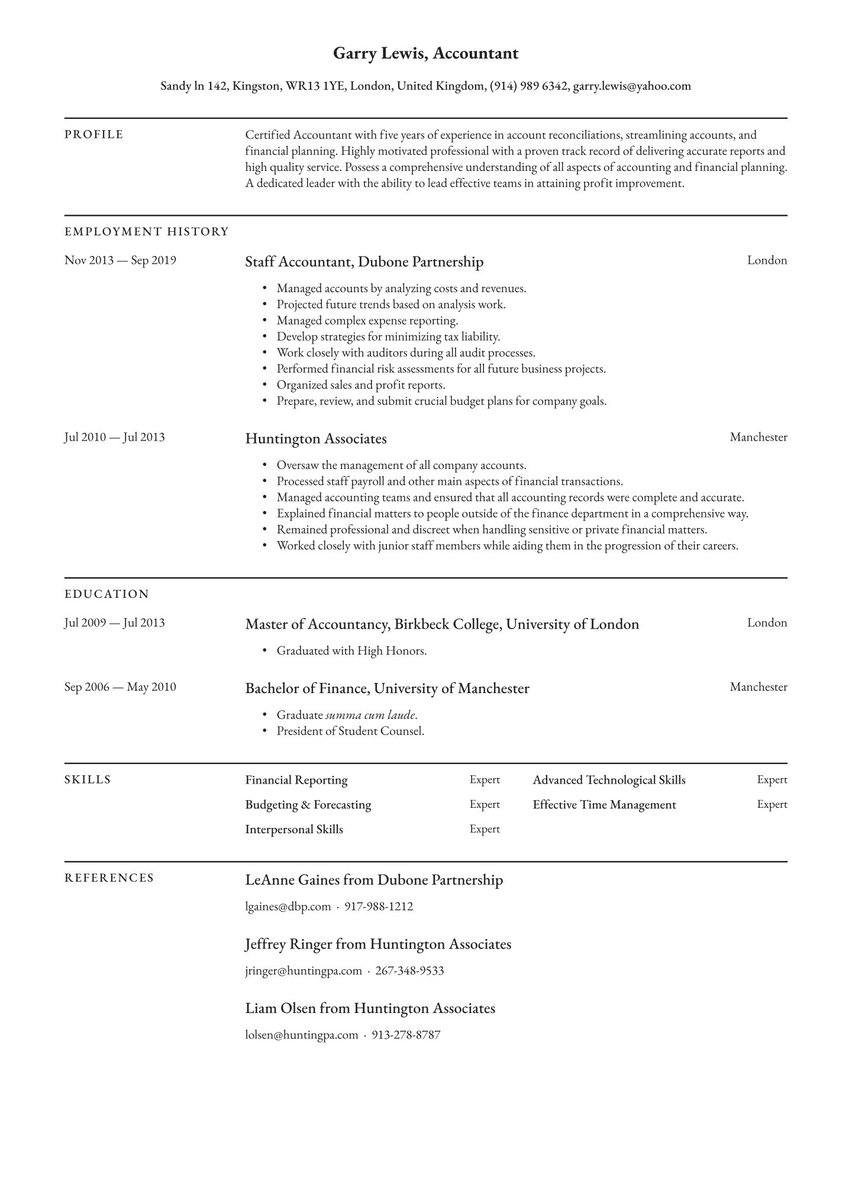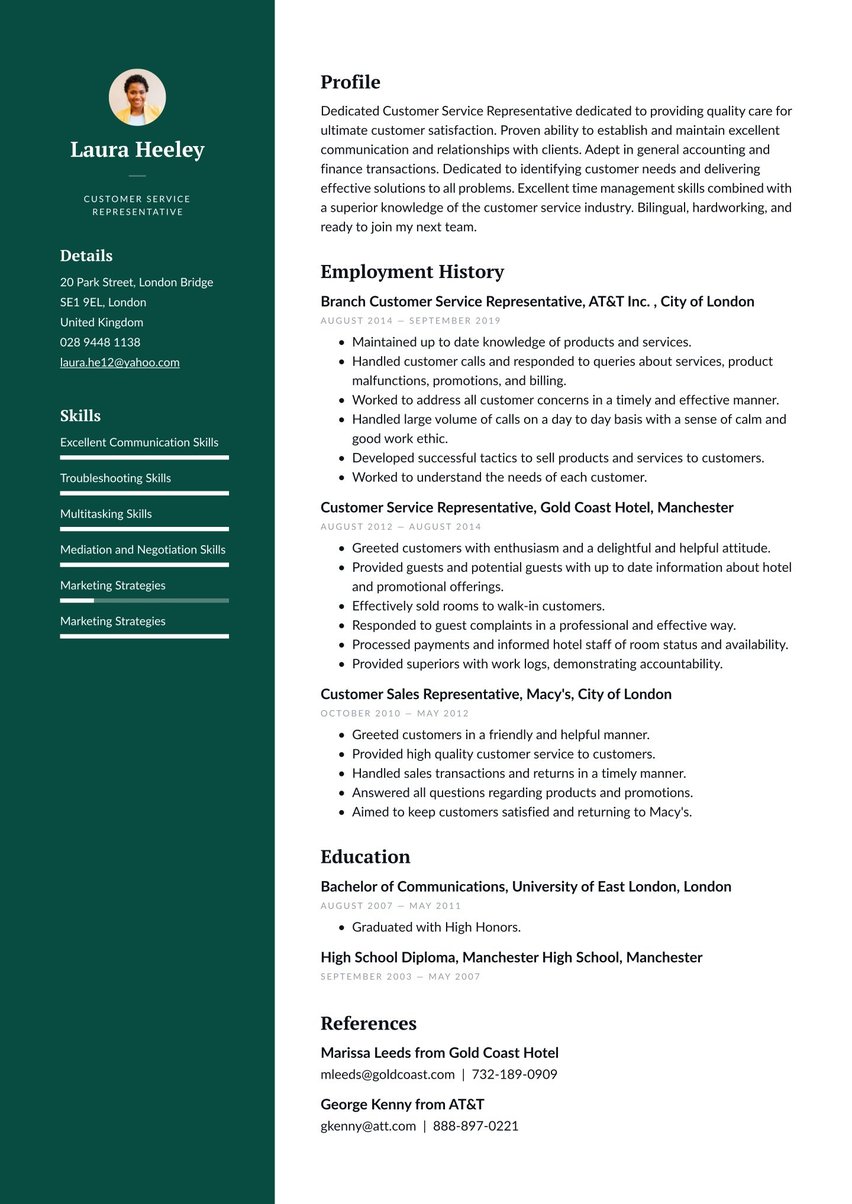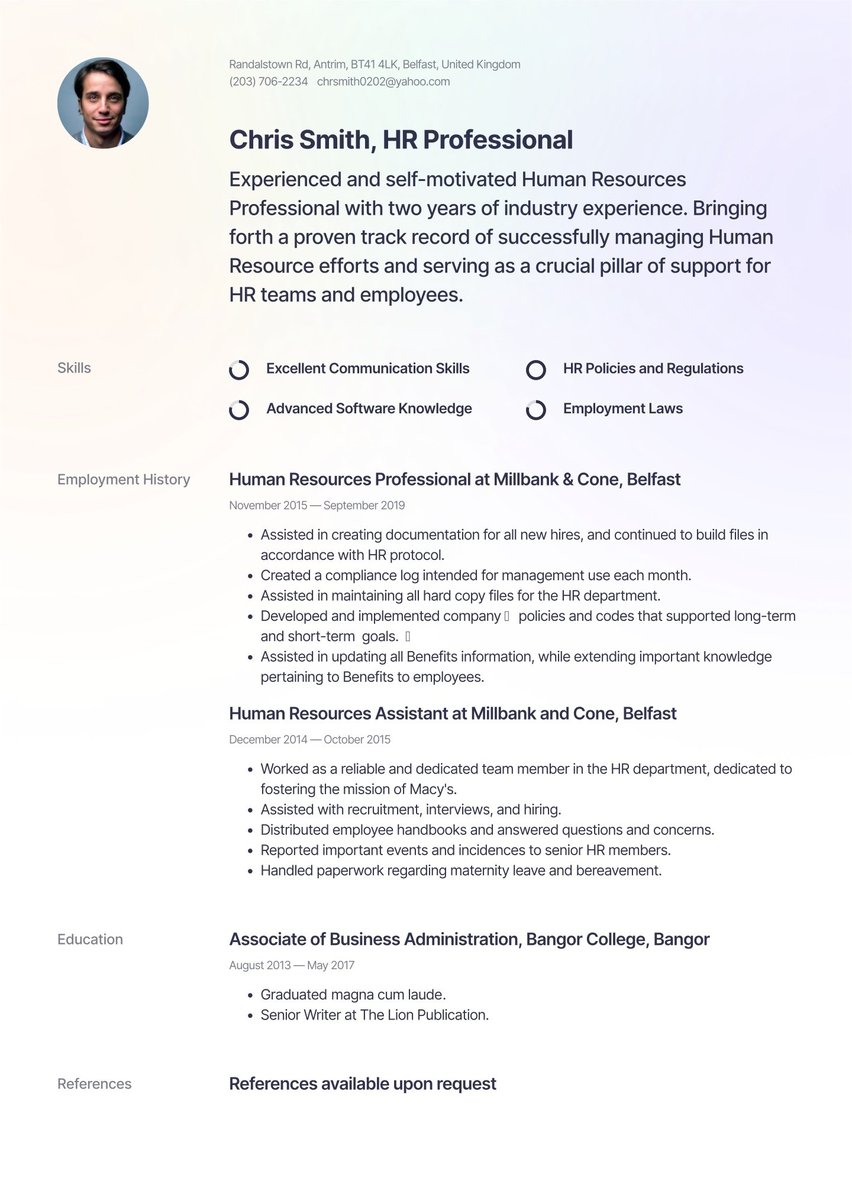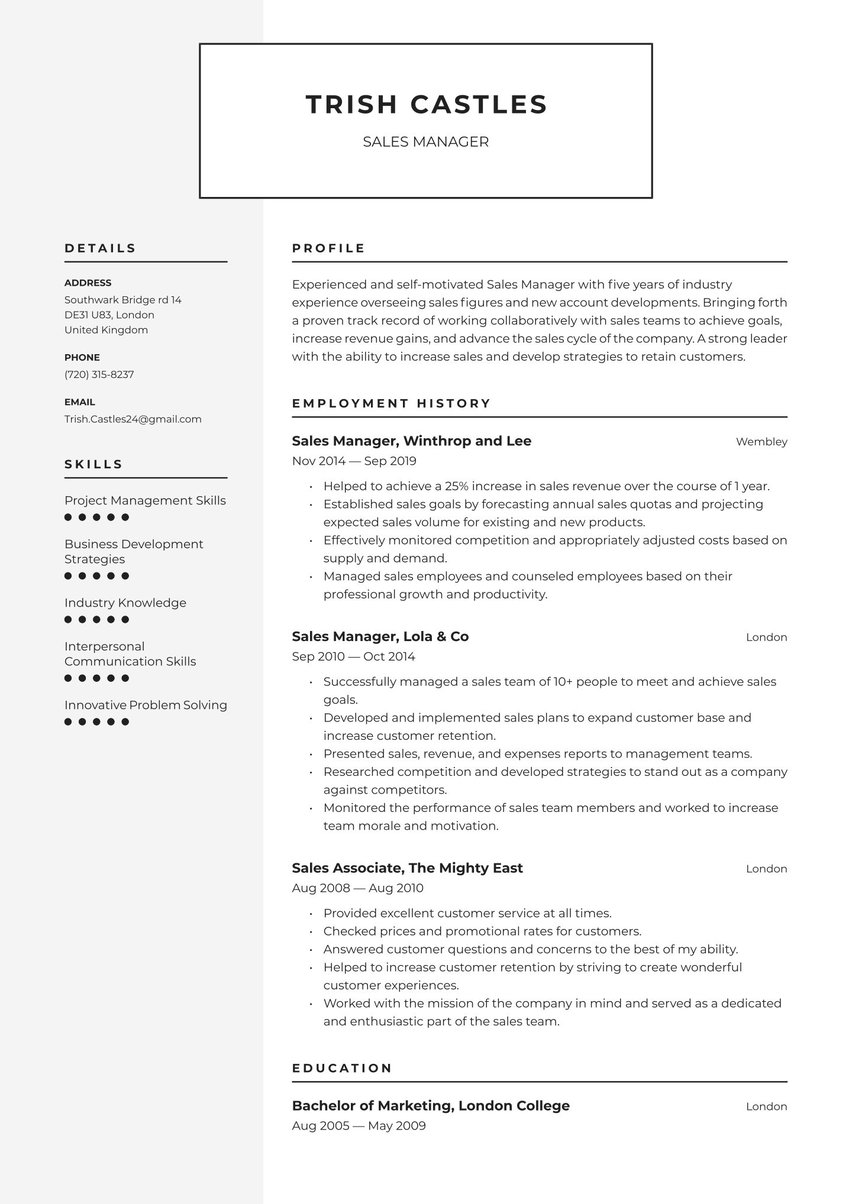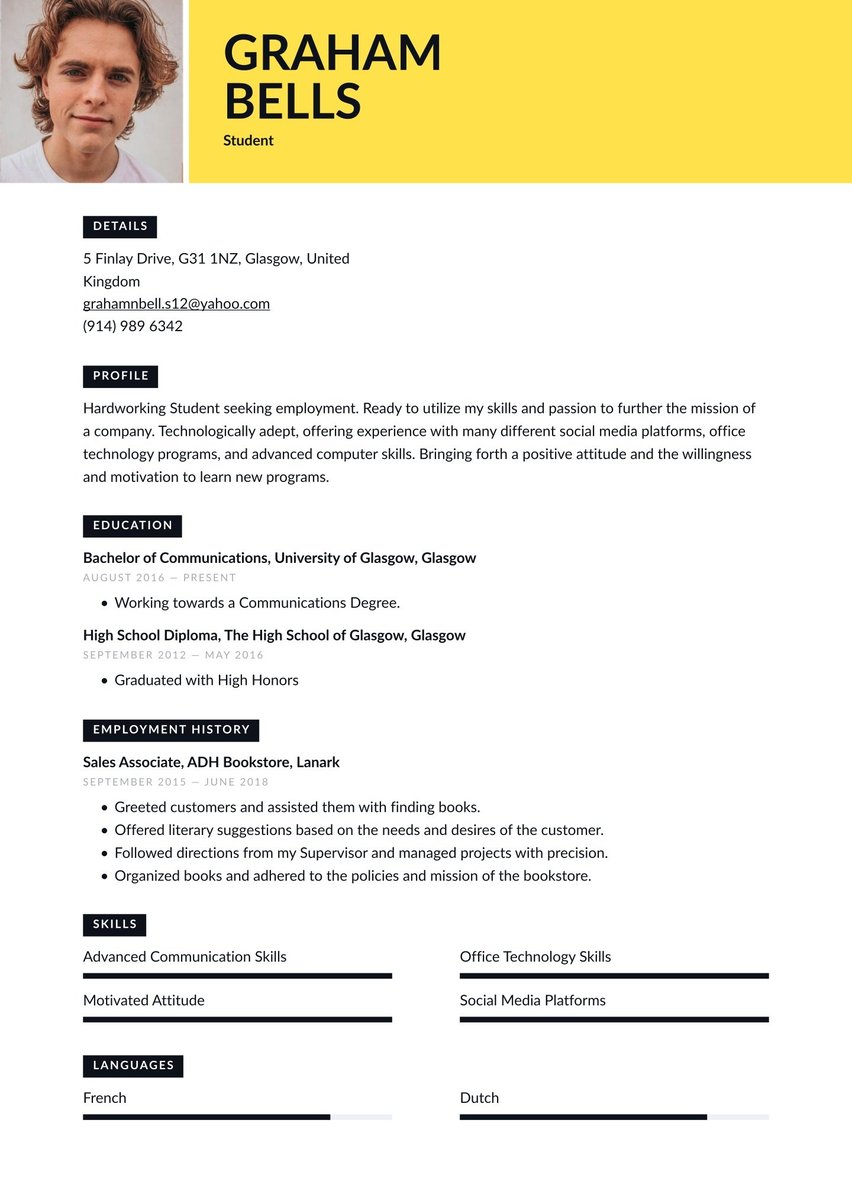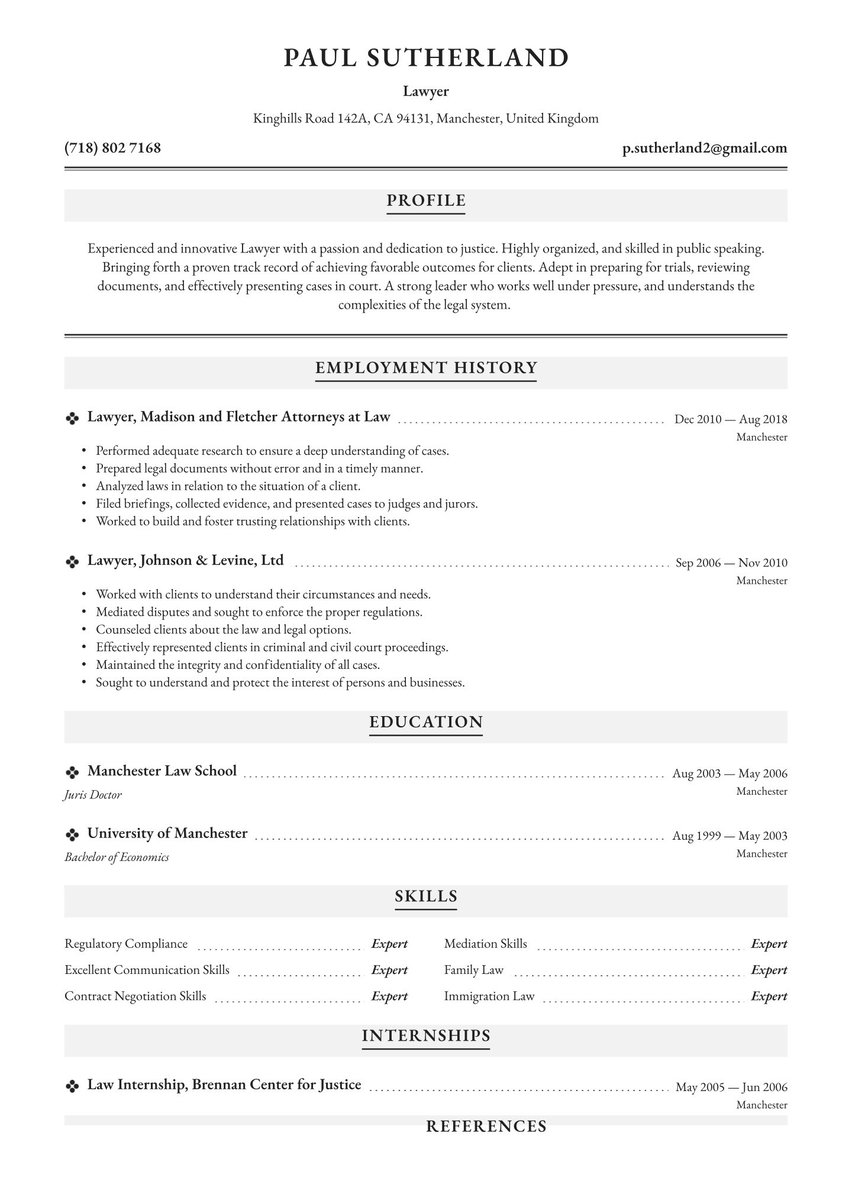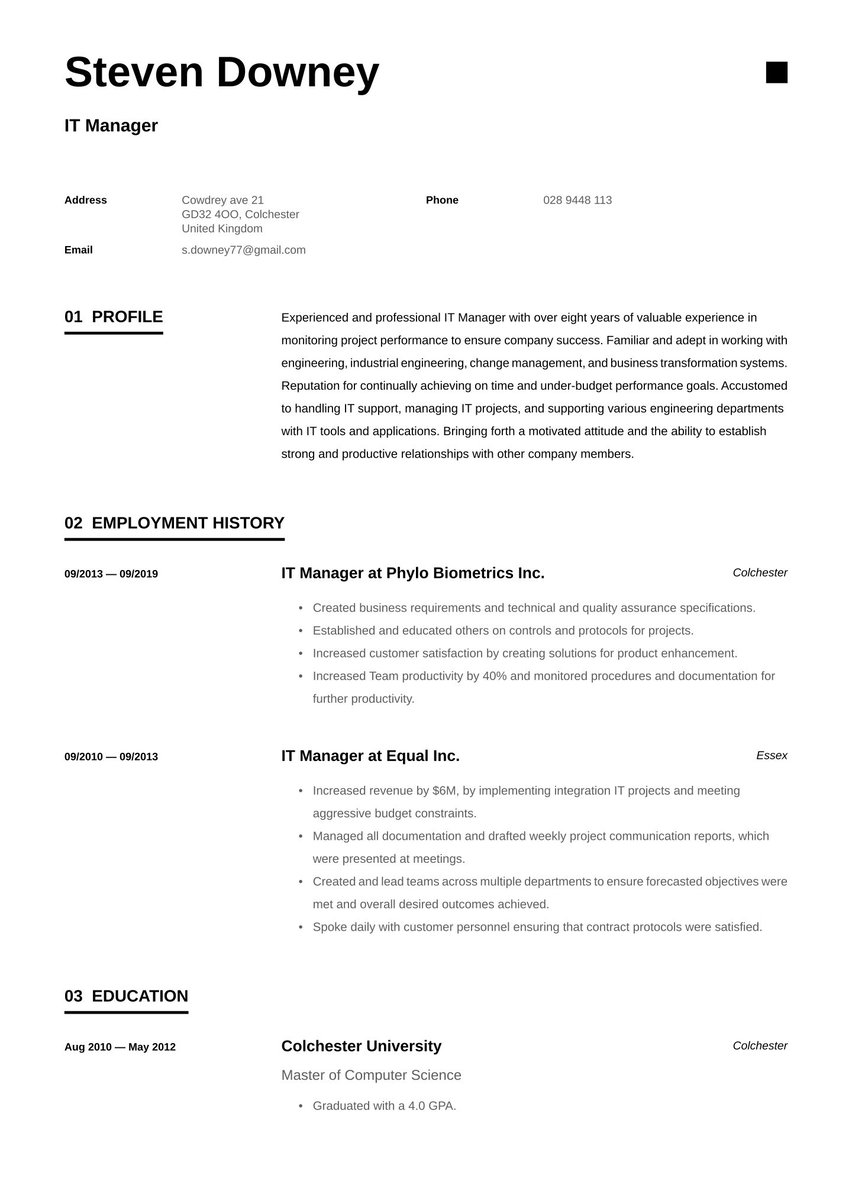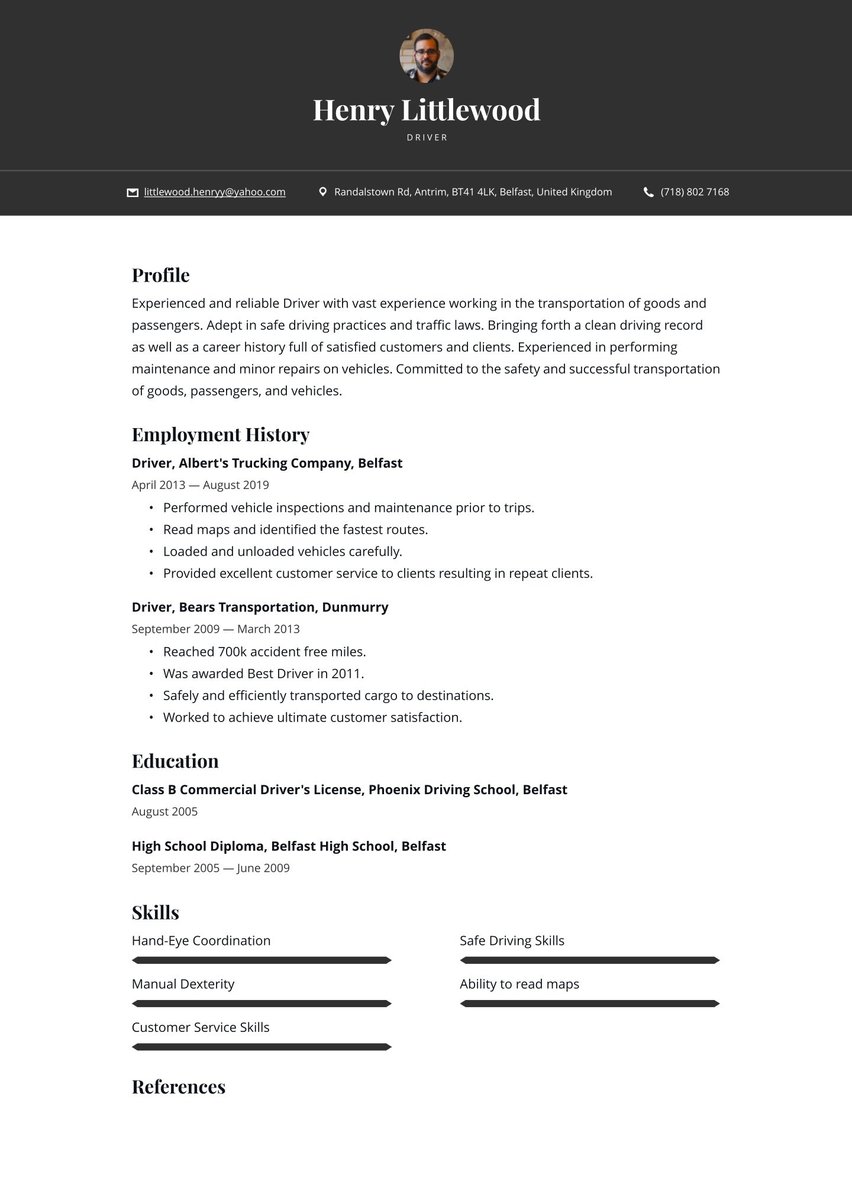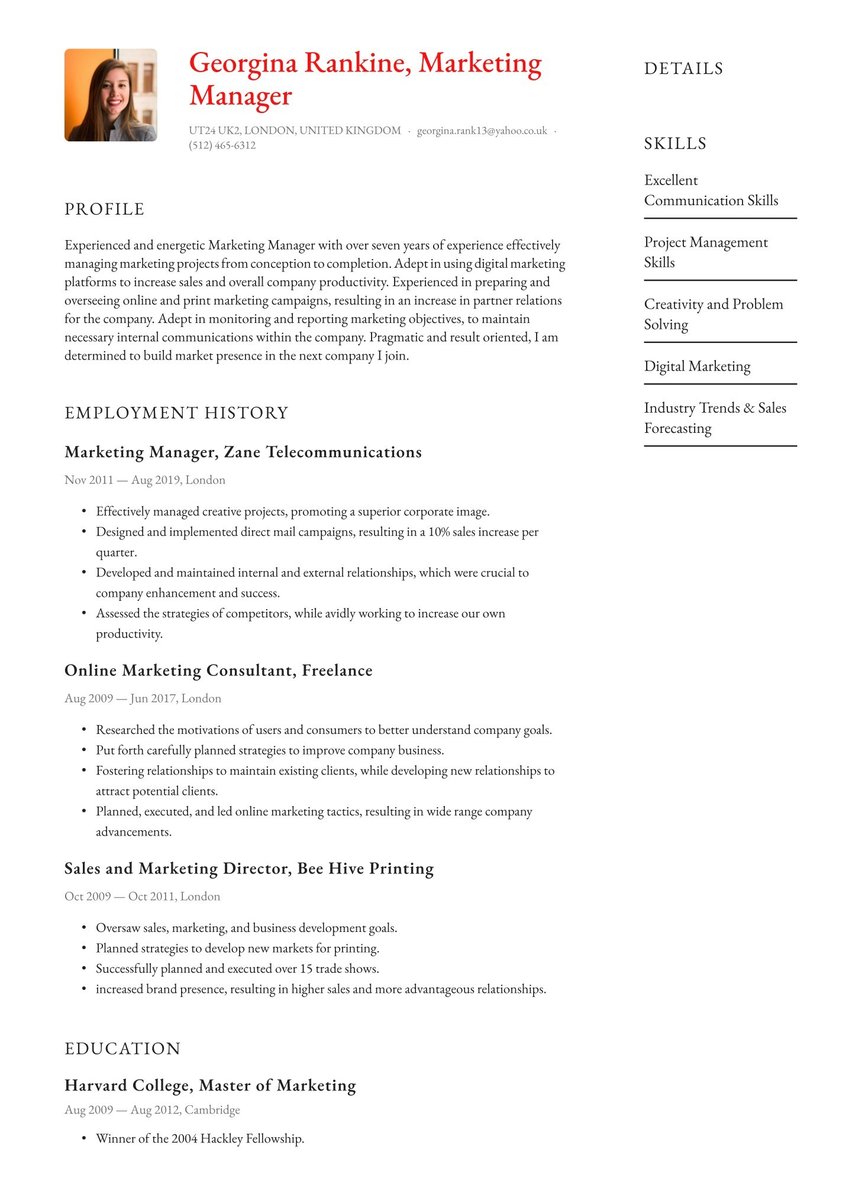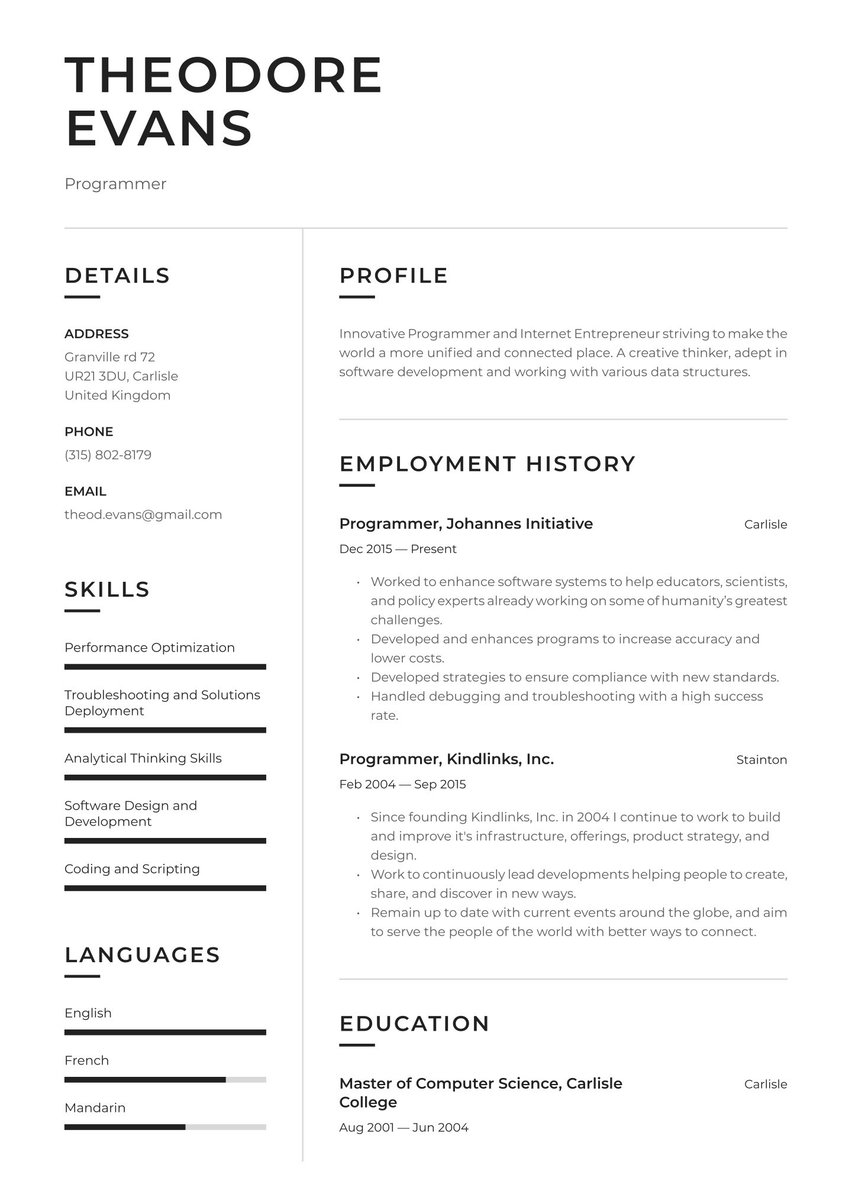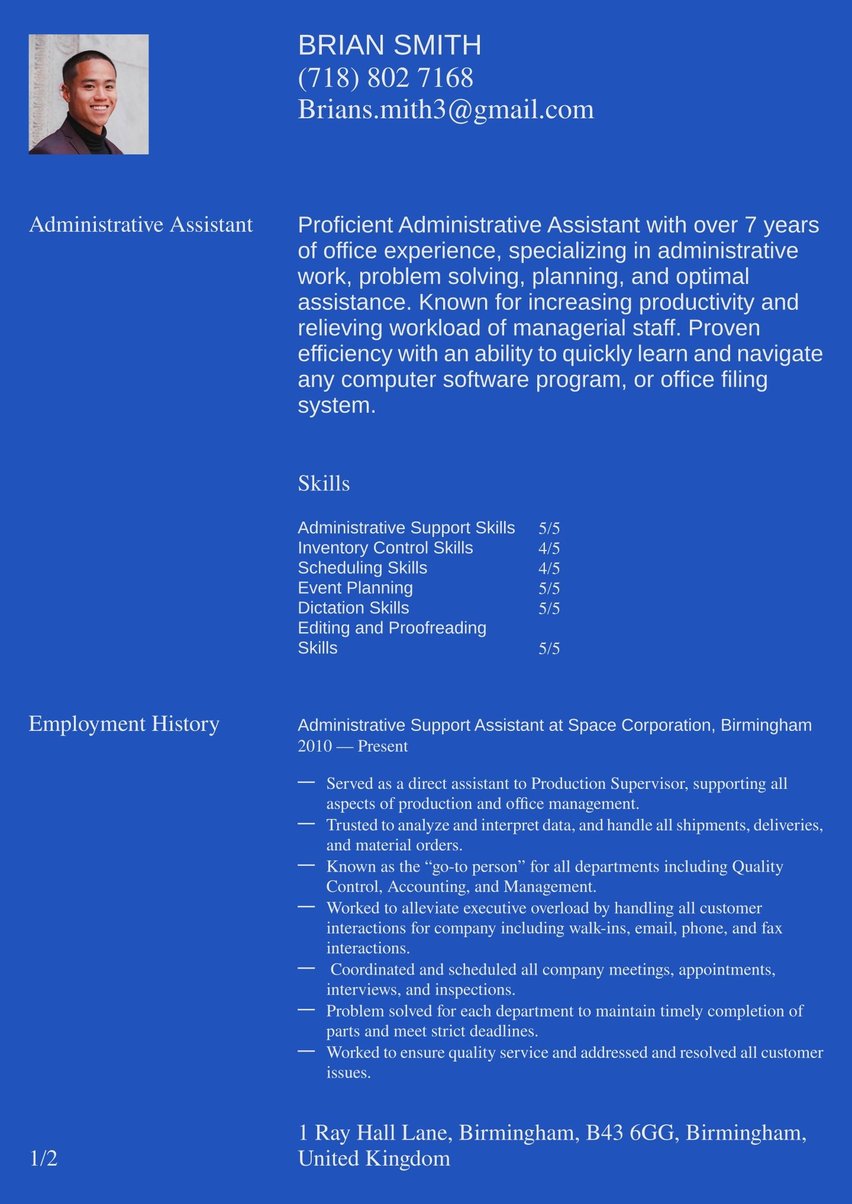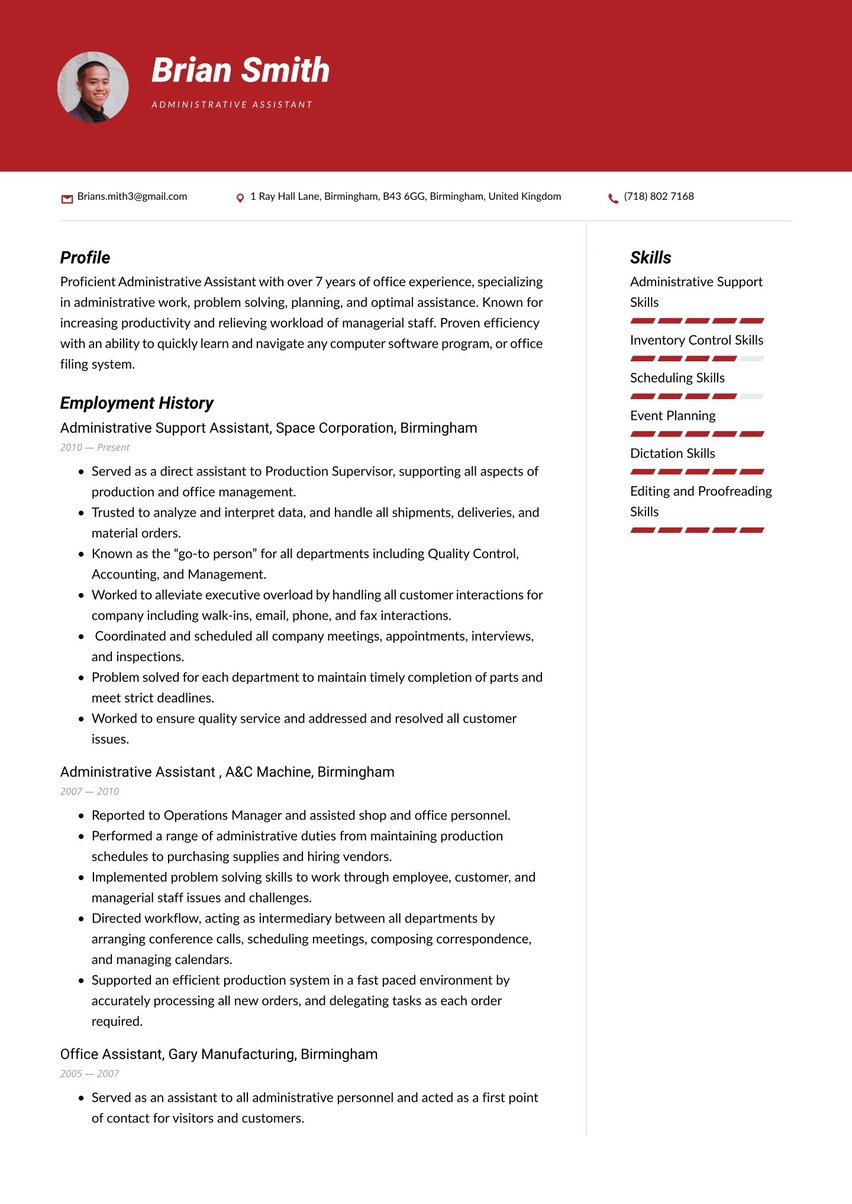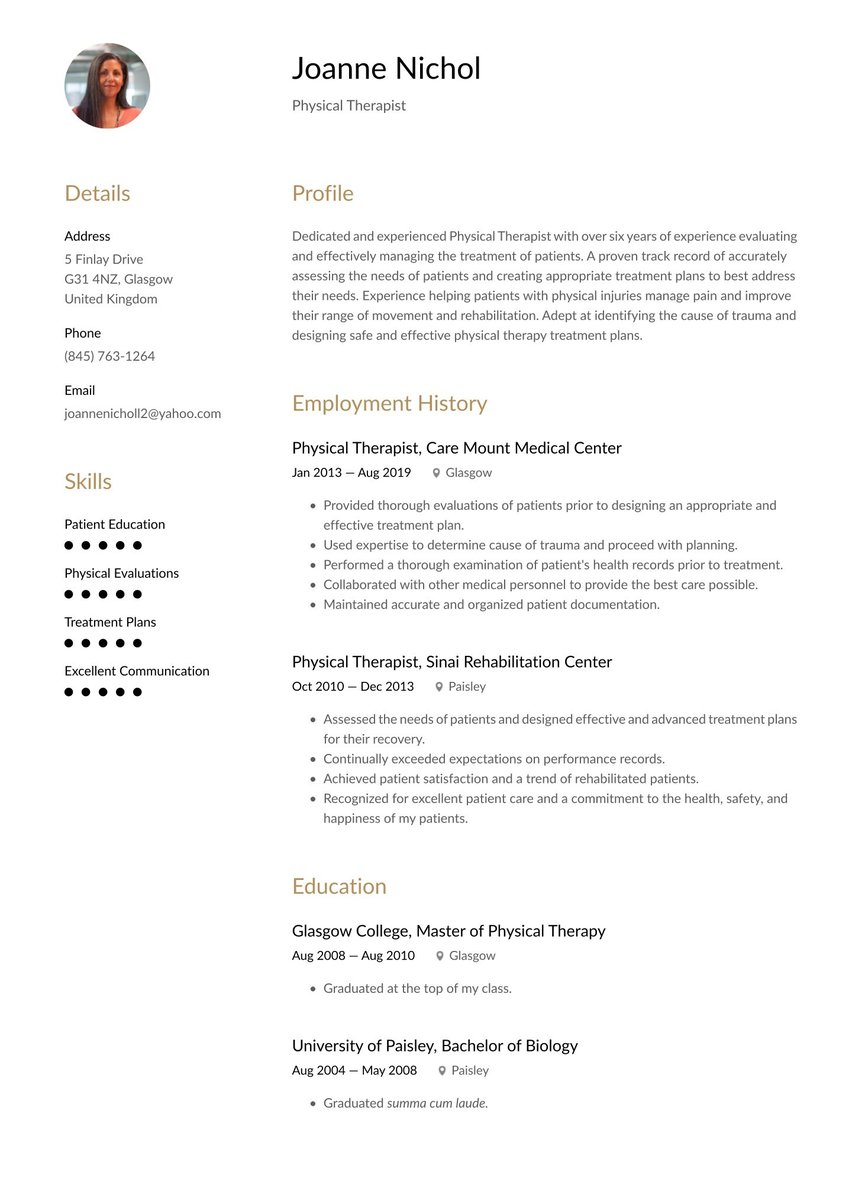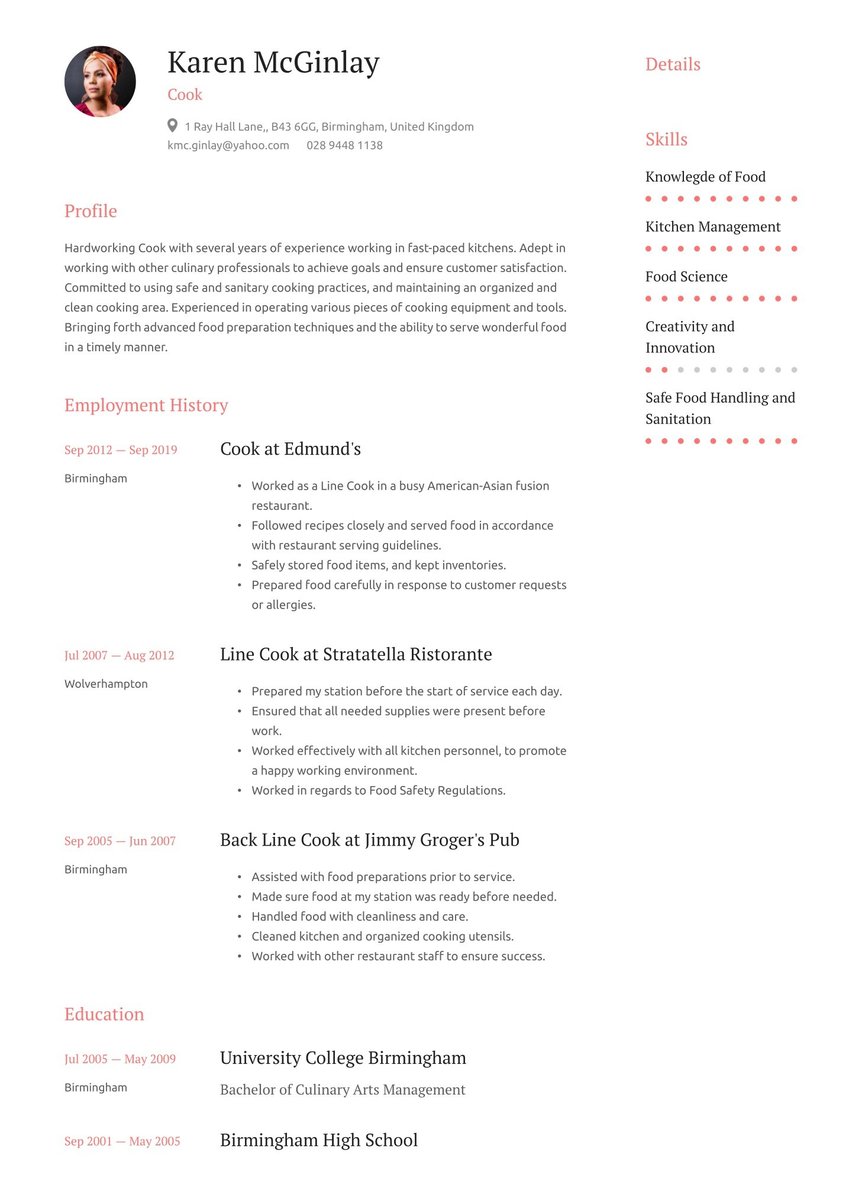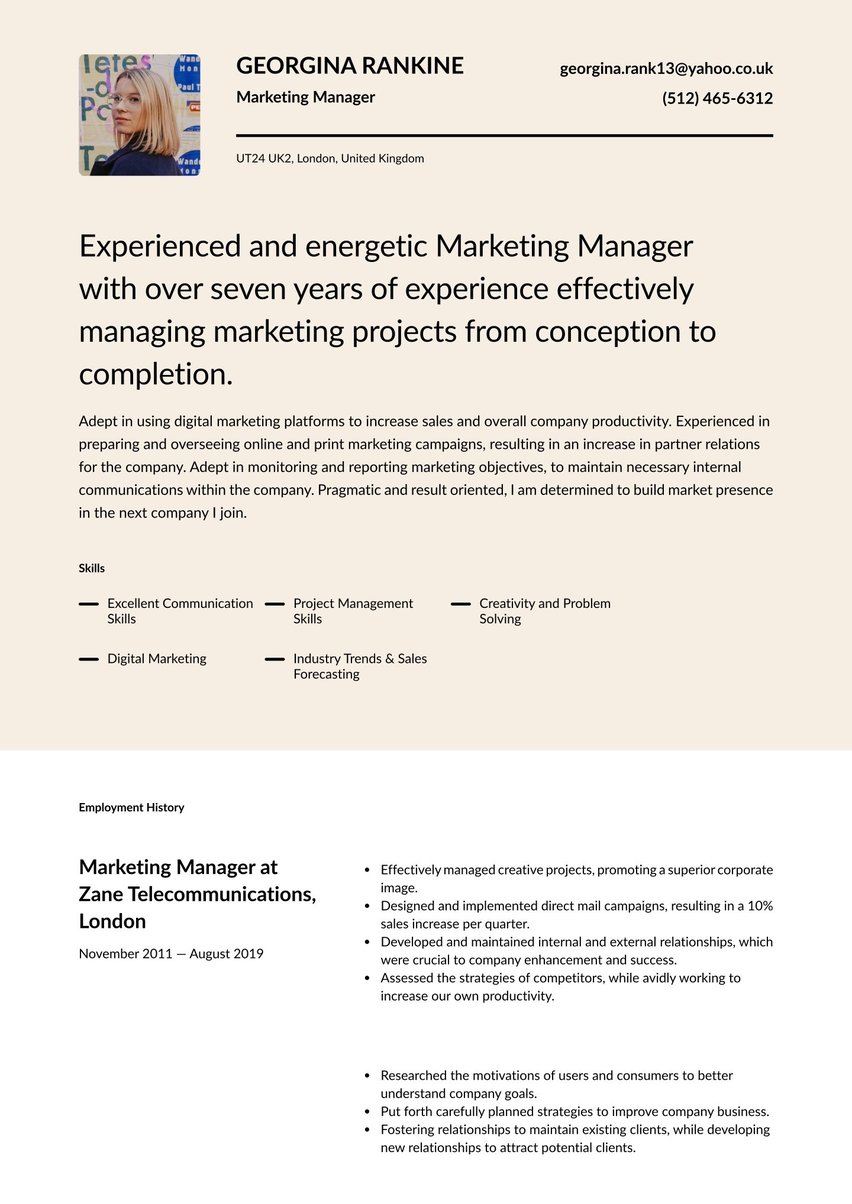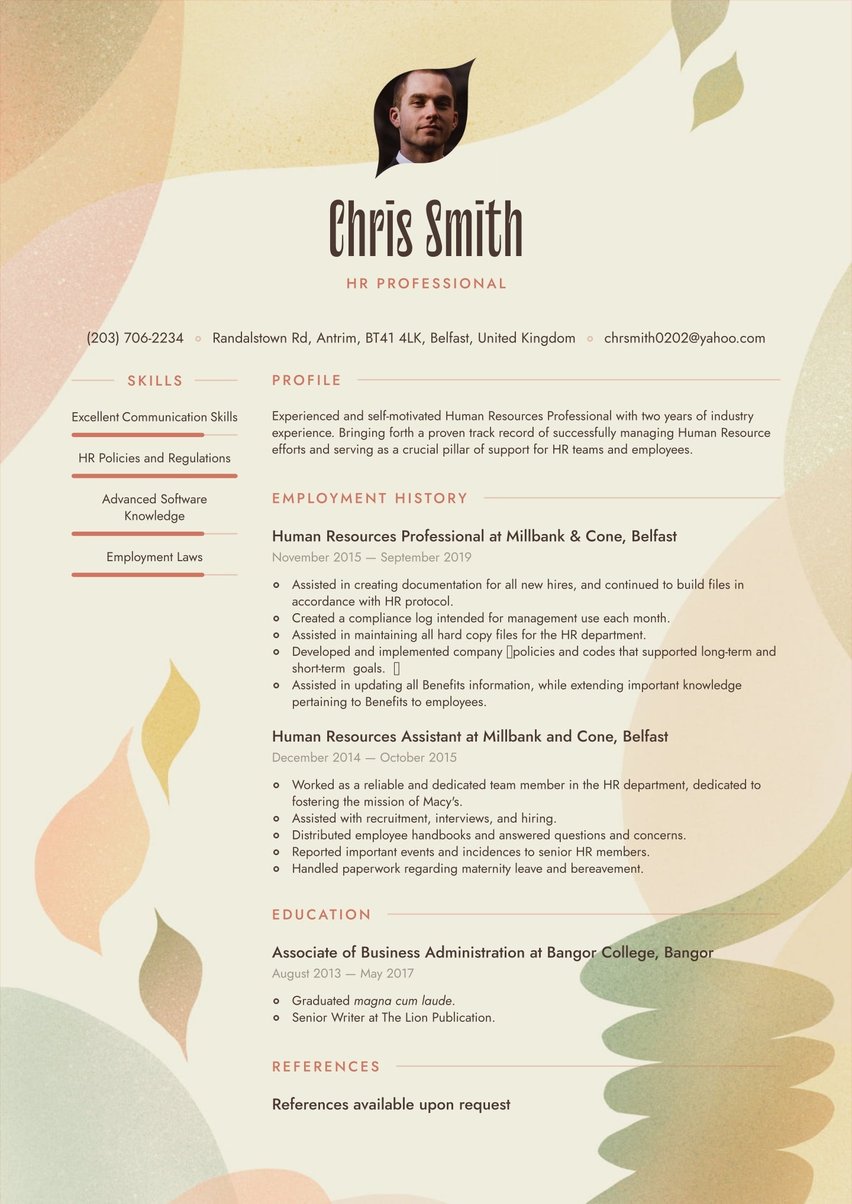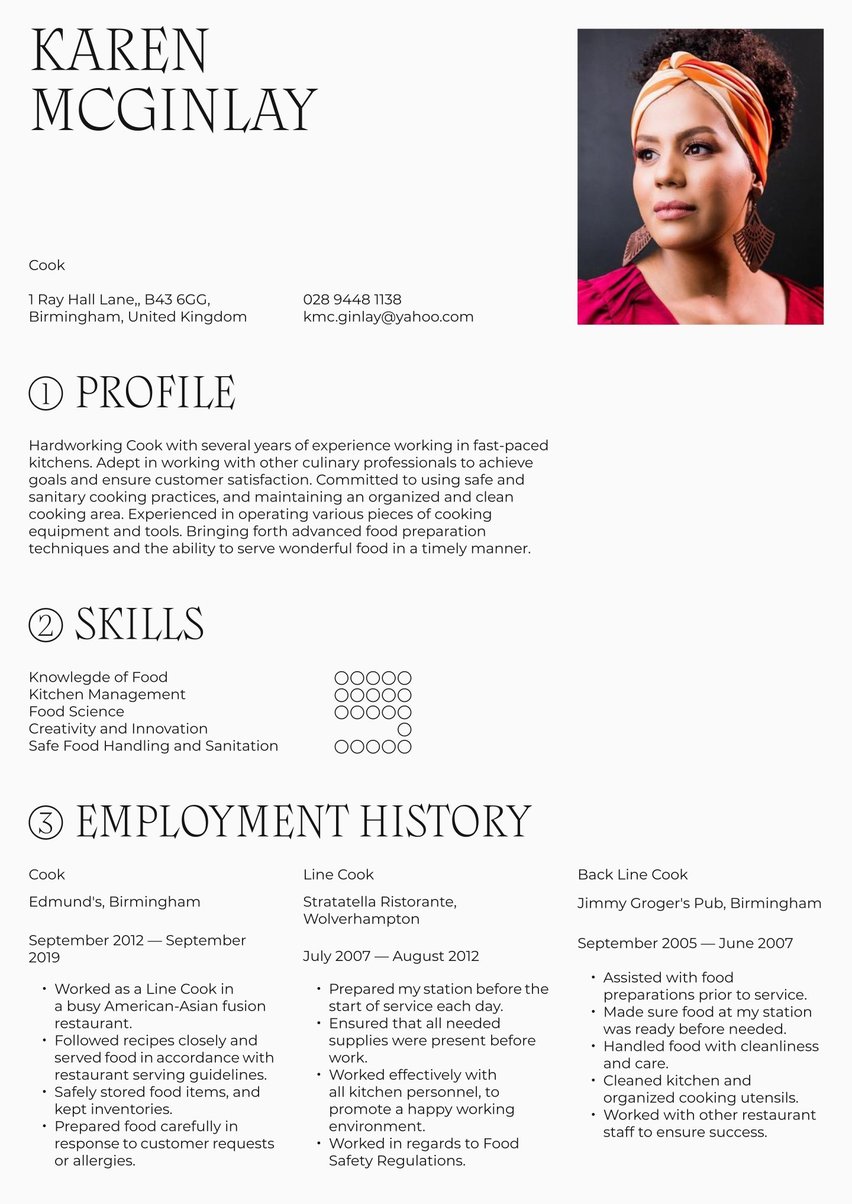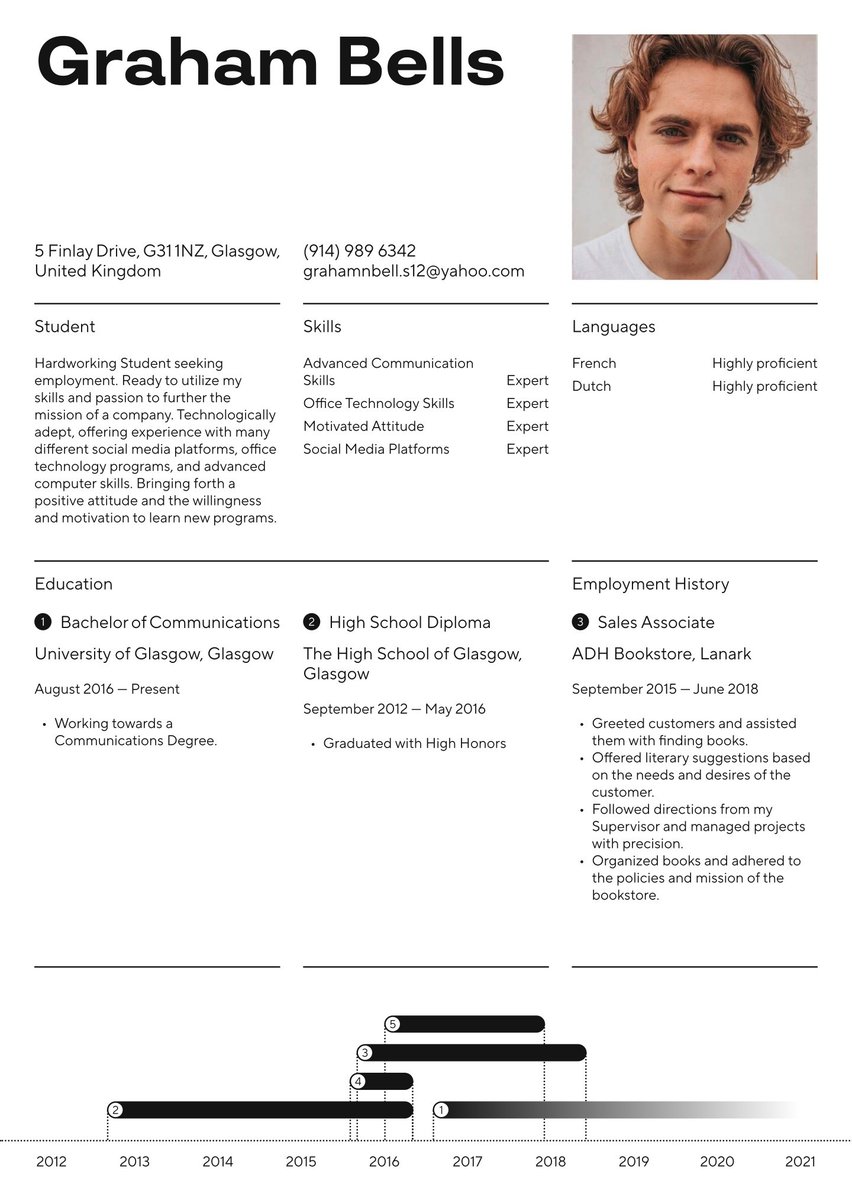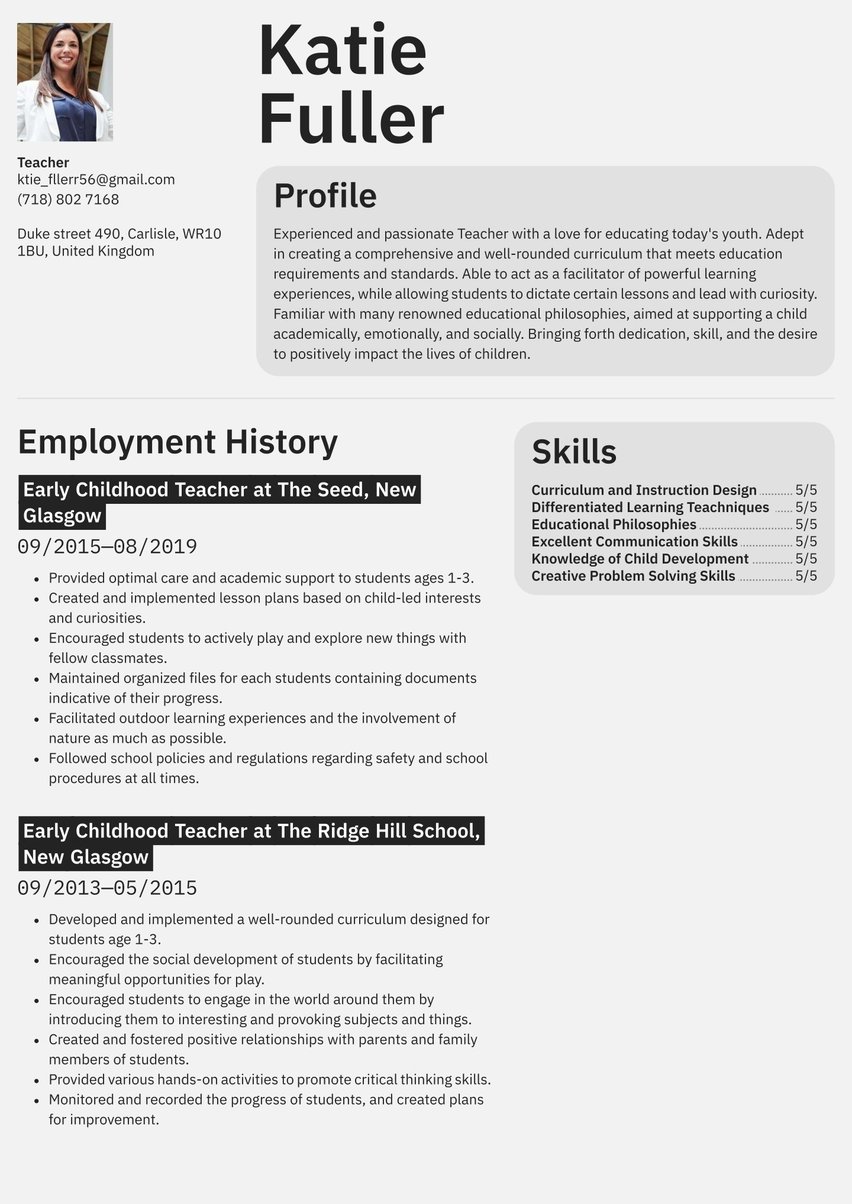Attentive and detail-oriented electrician with ten years of experience in large-scale commercial properties, including hospitals and schools. Experienced in installation of conduit wiring systems and maintenance of electrical systems. A proven team player with the ability to build strong relationships both within the company and with external clients.
01/2012 - present, Electrician, JD Construction, Nottingham
- Completed 15 electrical projects within commercial properties including office buildings and medical facilities, ensuring 100% compliance with safety regulations.
- Performed frequent repairs and general maintenance tasks on electrical systems, fixtures, and appliances, achieving an average turnaround time of 48 hours or less.
- Identified and resolved faults in over 100 electrical equipment units, achieving 95% success rate in function restoration and minimising downtime.
- Updating administration on projects, ensuring accuracy.
- Working together as part of a team, as well as on own initiative.
04/2005 - 08/2009, Labourer, Bromley's, Nottingham
- Supported construction workers, performed general labouring duties.
- Ensured the site was always kept safe and tidy.
- Adhered to health and safety procedures.
- Moved material as requested.
- Dealt with requests from managers.
- Handled general housekeeping tasks.
01/2004 - 02/2005, Retail Assistant, WH Smithy, Nottingham
- Served customers, providing a friendly and helpful experience.
- Stocked shelves and ensured replenishment.
- Dealt with customer queries and complaints.
- Handled general housekeeping, ensuring the store was always kept clean and tidy.
- Ordered stock, ensuring maintenance of supplies.
- Worked together as part of a team with colleagues.
08/2009 - 08/2012, NVQ Level 1-3, Nottingham College, Nottingham
- City Guilds 2391/2394 and 2395 inspection and testing.
- Adaptability
- Critical thinking and problem solving
- Highly Motivated
- Electrical Installation
- Electrical Wiring
- Electrical Inspections and Repair
Electricians are just as crucial as electricity itself. They use their expertise to ensure we have power and are kept safe through regular maintenance of our electrical systems. Poor installations and faulty fuses can be life-threatening.
A CV is just as important for landing a job as an electrician as it is for any profession. A great CV will reflect well on you and show that you are a professional candidate.
CV guide for an electrician CV
To power up your CV, make use of job-hunting services such as those of Resume.io. Our extensive database of CV examples, covering over 65 professions, and our CV builder are designed to walk you through each step of creating a great application.
By the end of this writing guide, together with the electrician CV example, you will learn about:
- How to write an electrician CV
- Choosing the right CV format for an electrician
- How to add your contact information
- Using summaries
- Adding your electrician experience
- Listing education and relevant certifications
- Picking the right CV design/layout
- What the electrician market looks like and what salary you can expect
How to write an electrician CV
The structure is critical when writing your electrician CV. Most CVs will follow this standard structure:
- The CV header
- The CV summary (aka profile or personal statement)
- The employment history section
- The CV skills section
- The education section
Applying for jobs is a process that takes time, much like designing an electrical system, but with the right tools, you can make the process easier and quicker. This starts with creating your CV. Someone hiring an electrician wants to see that you’re hardworking, comfortable with equipment, and knowledgeable about electrical wiring.
Your CV should use the following formula to provide this information:
- Focus on your accomplishments, not just your responsibilities. Anyone can provide a list of electrician jobs they were assigned, but not everyone has accomplished what you have. Think about your specific accomplishments and how you’ve brought value to past roles.
- Tailor your CV to each employer, adjusting your style and tone to theirs and using relevant language from the job advert.
- Use a simple, straightforward CV template that isn’t overly formal or stuffy. Electrician jobs are hard work!
- Optimise your CV for relevant keywords so you have the best chance of impressing both recruiters and any CV scanning software the company may use.
Optimise for the ATS
An applicant tracking system, or ATS, is a system companies use to collect and manage submissions. Advanced systems can use algorithms that screen CVs for keywords that match those in the job description, then pass the highest-ranking CVs forward in the process.
For example, an electrician job posting may include the following requirements:
- “Experience in commercial and residential settings.”
- “Electrical wiring system experience.”
- “10 years of experience.”
Your resume profile summary, when integrating the keywords, could read:
“Experienced electrician with 10 years of experience in both commercial and residential settings. Expertise designing and maintaining electrical wiring systems.”
Choosing the right CV format for an electrician
A reverse chronological format is the best format for an electrician CV, meaning you’ll display your experience in reverse chronological order (latest at the top.) This format is preferred both by hiring managers and the applicant tracking systems companies use to collect applications.
The employment history section allows you to showcase your previous experience and the skills you’ve mastered. However, if you’re just beginning your electrician career, or you’re making a major career change into the industry, you may consider a functional or skills-based CV format, which lets you focus on your transferable skills instead of your work history.
Whichever format you choose, you can see many CV templates in our CV builder. There are plenty of CV examples using each format as well, so you can see all of your options in action.
Design-wise, ensure your electrician CV is easy for the reader to view and understand. We recommend a simple layout.
Include your contact information
It’s imperative that your contact information is clearly presented on your CV. The best place to do this is in your CV’s header.
Simply put, the header is the top part of your CV, where you display your contact information and name in a professional manner. You’ll want to include the following:
- Full name & title. List your first and last name and the title of the role you are pursuing.
- Professional email address. Use a clean format like firstname.lastname@gmail.com — avoid using a quirky or unprofessional email address.
- Phone number. List a number where you can easily be reached. Make sure your voicemail box is not full and that you have a professional outgoing greeting.
- Location. List only your city and country, not your street address, as this is both outdated and unsafe. You can leave off your postcode, as well.
- LinkedIn. Although LinkedIn isn’t overly common among electricians, if you have an active profile, you can include it here. Omit other social media profiles, however.
Don’t include:
- Date of birth: This isn’t necessary and could potentially lead to age discrimination.
- Personal details: Your marital status, passport number, etc. have no use on a CV.
Bob Green
Electrician
Nottingham, United Kingdom
0131 226 7808
Bobgreene@hotmail.com
Bob Green
123 Smith Street, Nottingham, United Kingdom
0131 226 7808
bobotheclown@gmail.com
Make use of a summary
An electrician needs to be qualified, and ideally, have relevant experience. The hiring manager wants to know what experience you have relevant to the role, your main achievements, and how you approach your work. Use the summary of your electrician CV to highlight this information.
The summary only needs to be 2-3 sentences, but it should provide the hiring manager with the main details of your career and skills to date. Show your achievements instead of just a list of duties.
As much as possible, use action verbs in the simple past or present tense (designed, maintained, developed, etc.). Include quantifiable metrics wherever you can.
Need inspiration for your summary? Check out our related trade resumes:
You can find adaptable electrician CV example summaries below:
Attentive and detail-oriented electrician apprentice with one year of experience in commercial properties. Knowledge of installation of conduit wiring systems and maintenance of electrical systems. A quick learner and proven team player with the ability to build strong relationships both within the company and with external clients.
Attentive and detail-oriented electrician with 5 years of experience in large-scale commercial properties, including hospitals and schools. Experienced in installation of conduit wiring systems and maintenance of electrical systems. A proven team player with the ability to build strong relationships both within the company and with external clients.
Experienced and knowledgeable electrician with 10 years of experience in large-scale commercial properties, including hospitals and schools, as well as high-occupancy residential buildings. Expert in the installation of conduit wiring systems and maintenance of electrical systems. A proven team leader with the ability to develop junior electricians and build strong relationships within the company and with external clients.
Outline your electrician work experience
The employment history section of your electrician CV should include bullet points describing your contributions and accomplishments from each of your past roles, going back 10-15 years in reverse chronological order. Only include experience that is directly relevant to the work you’re targeting.
Each of your bullet points should begin with an action verb and omit pronouns like “I” or “my.” This is where you’ll give the hiring manager complete confidence that you are fit for the role. The industry relies on people who don’t need much hand-holding, so unless you are applying for an apprentice role, the hiring manager will be looking for someone who can roll their sleeves up and get on with the job.
This means that rather than listing job duties, you should show demonstrable outcomes. For example, you can imagine reading a resume that lists the following:
- “Worked on a range of electrical projects within commercial properties.”
- “Carried out repairs, installations, and general maintenance.”
- “Responsible for fault finding of electrical equipment.”
While they are all accurate for an electrician job, those bullets don’t make a very compelling CV. The statements could apply to anyone and they don’t show your specific impact. Instead, develop statements that show the results you brought to the team. Did you finish every project on time and under budget? Did you catch every issue before it caused major electrical outages?
Check out these reworked versions of the phrases above:
- “Completed 15 electrical projects within commercial properties including office buildings and medical facilities, ensuring 100% compliance with safety regulations.”
- “Performed frequent repairs and general maintenance tasks on electrical systems, fixtures, and appliances, achieving an average turnaround time of 48 hours or less.”
- “Identified and resolved faults in over 100 electrical equipment units, achieving 95% success rate in function restoration and minimising downtime.”
Take a look at the electrician employment history CV sample below:
Electrician at JD Construction, Nottingham
January 2012 - Present
- Completed 15 electrical projects within commercial properties including office buildings and medical facilities, ensuring 100% compliance with safety regulations.
- Performed frequent repairs and general maintenance tasks on electrical systems, fixtures, and appliances, achieving an average turnaround time of 48 hours or less.
- Identified and resolved faults in over 100 electrical equipment units, achieving 95% success rate in function restoration and minimising downtime.
- Updating administration on projects, ensuring accuracy.
- Working together as part of a team, as well as on own initiative.
Labourer at Bromley's, Nottingham
April 2005 - August 2009
- Supported construction workers, performed general labouring duties.
- Ensured the site was always kept safe and tidy.
- Adhered to health and safety procedures.
- Moved material as requested.
- Dealt with requests from managers.
- Handled general housekeeping tasks.
Retail Assistant at WH Smithy, Nottingham
January 2004 - February 2005
- Served customers, providing a friendly and helpful experience.
- Stocked shelves and ensured replenishment.
- Dealt with customer queries and complaints.
- Handled general housekeeping, ensuring the store was always kept clean and tidy.
- Ordered stock, ensuring maintenance of supplies.
- Worked together as part of a team with colleagues.
Include the relevant key skills that make you a great electrician
A CV for electrician work should include both hard and soft skills to give a comprehensive view into your overall experience.
Hard skills are those likely to be demonstrable and measurable, like knowledge of specific equipment, an understanding of electrical wiring, or maintenance expertise.
Soft skills, however, may include things like strong communication and collaboration skills, team leadership, or the ability to learn quickly.
Our CV builder provides numerous pre-written key skills to choose from, along with proficiency ranges you can set. Or, you can also write in your own skills.
Here’s what the skills box looks like in our electrician CV template.
Key Skills and Proficiencies
Note that this section isn’t the only place where you should add your key skills. Instead, show them throughout your CV by demonstrating them in action within your summary and experience sections. Provide specific examples and achievements to give yourself even more credibility.
For example, in your work experience section and professional summary, highlight your:
- Leadership skills by describing your role leading, training, and mentoring other electricians, or leading project teams
- Knowledge of regulations by stating the safety and legal regulations you’ve followed as an electrician
- Equipment knowledge by demonstrating your experience operating or maintaining job-related tools
Look to the job description as a guide for what key skills to include.
Detail your education & relevant electrician certifications
The education section for an electrician CV will be fairly straightforward. Just list your academic accomplishments in reverse chronological order. Although it isn’t required for an electrician, if you’ve earned a university degree, you don’t need to add earlier education unless it’s especially relevant.
Becoming an electrician requires specific qualifications. You can either undertake an electrical apprenticeship, which typically lasts 3-4 years, or earn a diploma with NVQ top-up.
However, don’t limit your education section to just those qualifications. Consider the following:
- Training and certifications. If you’ve taken any additional courses or workshops to gain electrician skills, include them here.
- Apprenticeships. Most electricians have completed an apprenticeship, so add that to your CV.
- Professional development. Are you involved with industry associations like the Electrical Contractors’ Association? This can show your passion for and commitment to the industry.
NVQ Level 1-3, Nottingham College, Nottingham
August 2009 - August 2012
- City Guilds 2391/2394 and 2395 inspection and testing.
Pick the right CV layout and design for an electrician CV
A great electrician CV layout and design communicates your professionalism and expertise, and can easily make you stand out from other candidates.
To craft a CV that presents you in the best possible light, use a clean, simple layout that puts the focus on the content. That means you should avoid images, flashy colours, or too many fonts. We recommend a simple CV template, with clean lines, ample whitespace, and a professional feel. It should be easy for the reader to understand your background and experience.
While there’s no shortcut to a well-crafted CV for electrician work, our CV templates can help. We handle the formatting and design for you, making it easy to land your next electrician job.
Electrician text-only CV example
Profile
Attentive and detail-oriented electrician with ten years of experience in large-scale commercial properties, including hospitals and schools. Experienced in installation of conduit wiring systems and maintenance of electrical systems. A proven team player with the ability to build strong relationships both within the company and with external clients
Employment history
Electrician at JD Construction, Nottingham
January 2012 - Present
- Completed 15 electrical projects within commercial properties including office buildings and medical facilities, ensuring 100% compliance with safety regulations.
- Performed frequent repairs and general maintenance tasks on electrical systems, fixtures, and appliances, achieving an average turnaround time of 48 hours or less.
- Identified and resolved faults in over 100 electrical equipment units, achieving 95% success rate in function restoration and minimising downtime.
- Updating administration on projects, ensuring accuracy.
- Working together as part of a team, as well as on own initiative.
Labourer at Bromley's, Nottingham
April 2005 - August 2009
- Supported construction workers, performed general labouring duties.
- Ensured the site was always kept safe and tidy.
- Adhered to health and safety procedures.
- Moved material as requested.
- Dealt with requests from managers.
- Handled general housekeeping tasks.
Retail Assistant at WH Smithy, Nottingham
January 2004 - February 2005
- Served customers, providing a friendly and helpful experience.
- Stocked shelves and ensured replenishment.
- Dealt with customer queries and complaints.
- Handled general housekeeping, ensuring the store was always kept clean and tidy.
- Ordered stock, ensuring maintenance of supplies.
- Worked together as part of a team with colleagues.
Skills
- Adaptability
- Critical thinking and problem solving
- Highly Motivated
- Electrical Installation
- Electrical Wiring
- Electrical Inspections and Repair
Education
NVQ Level 1-3, Nottingham College, Nottingham
August 2009 - August 2012
- City Guilds 2391/2394 and 2395 inspection and testing.
Electrician job market and outlook
Electricians are always needed, as without them, much of our daily lives would be disrupted. There’s currently a shortage of electricians (and other trades workers) in the UK, as well as many other parts of the world. This means there’s ample opportunity for those looking to work as an electrician.
- It may cost between £2,000-£7,000 to attend trade school to become an electrician.
- Those who choose to start with an apprenticeship will learn on the job, at no cost to them.
What type of salary you can expect as an electrician
Electricians can earn anywhere from £18,000 per year starting out, to £42,000 per year as an experienced electrician.
Apprentices, however, start out making a bit less around £10,000 before moving up the ranks as they gain more experience.
Key takeaways for building an electrician CV
A career as an electrician can offer fulfilment for those who want to do hands-on work, like to have an impact on the general public, and understand technology and equipment. Safety regulations are vital, as well, so a good electrician must be safety-minded to ensure work is done well.
Utilising our online CV builder can help you create a great layout and design for your CV, getting you one step closer to landing that job.

